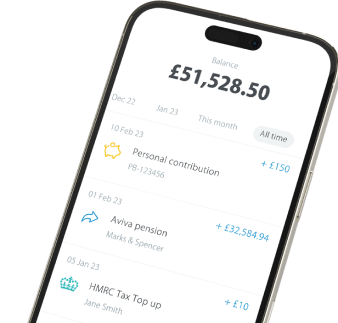
A lot changes when you become self-employed; the responsibilities, the satisfaction, and especially the finances. If you haven’t been self-employed before, you may find setting up and managing your self-employed finances much easier than you thought.
These days, being self-employed is more popular than ever (there are five million self-employed people in the UK alone!) and plenty of financial services exist to support them. Here are a few ways to help you manage your finances...
1. Register as self-employed
If you work for yourself, you’ll need to register as self-employed. This is partly a tax requirement as you’ll need to start reporting your income through Self Assessment, but it will also open up access to other services like self-employed bank accounts and mortgages.
It doesn’t take long, and you can register by phone or online using the Gov.uk website.
2. Open a self-employed bank account
A business bank account helps you keep your business finances and your personal finances separate, and should make it easier to complete your tax return and to provide evidence of your business transactions to HMRC if necessary.
Unlike most personal bank accounts, you’ll have to pay a fee for your business bank account (usually £5-10 per month). However, most accounts offer an initial fee-free period of one or two years. Bear in mind that any transaction that’s considered ‘non-standard’ will incur an extra charge, even within the fee-free period.
Most of the big banks offer business bank accounts, but if you’re looking for a slick app-based experience to help manage your money you may want to consider:
3. Keep business records
If you’ve set up a limited company, there are lots of rules governing the company and accounting records you need to keep. These include things like company spending, assets, debts and stock. As a result, many people choose to hire an accountant to help comply with these rules.
If you’re set up as a sole trader, it’s a little simpler. You’ll need to keep records of your business income and expenditure, so that you can give the numbers to HMRC when you complete your tax return.
In either case, you’ll want to keep records of all your transactions including:
- receipts
- bank statements
- invoices
Managing money effectively is key. It may be a good idea to create a spreadsheet that you update regularly with your income and outgoings, and there are also lots of apps for self-employed workers that can help you save and organise your receipts and other paperwork. Online accountancy platforms like FreeAgent and Xero are two popular options in the UK, and can simplify your bookkeeping greatly for a fee.
4. Consider self-employed business insurance
Business insurance isn’t a legal requirement for most self-employed workers, although if you take on any staff then you’re usually required to have employers’ liability insurance. You may also find that your client contracts and/or your professional bodies require you to have certain types of business insurance in place.
There are two main types of business insurance:
- Public liability insurance can pay compensation if someone sues you for injury or damage (if someone trips over in your shop, for example).
- Professional indemnity insurance can pay compensation if your client sues you for negligence or making a mistake (accidentally breaching confidentiality), for example.
Even if your client contracts and professional bodies don’t require you to have insurance, it may be a good idea anyway, as compensation claims can be very high.
Business insurance counts as an ‘allowable expense’, so the cost can be deducted when you’re working out your taxable income. Online insurance brokers like Simply Business can help you find a range of covers, from a range of insurers, but it can be worth exploring more specialist alternatives like Digital Risks if your needs are very specific.
5. Complete a self-employment tax return
When you’re self-employed, you’re responsible for filing a Self Assessment tax return and paying any tax owed to HMRC.
When you complete your tax return you’ll need to declare your business turnover and your ‘allowable expenses’, which are the costs that you can deduct from your turnover to calculate your taxable profit. You may want to get help from an accountant.
Because you won’t need to pay taxes until 31 January following the previous tax year, it’s good practice to put money aside throughout the year. This will make sure you’re not short on cash when it comes to paying your tax bill.
Check out our 10 top tips for filing your tax return.
6. Consider a self-employed mortgage
Buying a home when you’re self-employed can be more difficult than for those in regular employment, but it’s become easier in recent years.
When applying for a mortgage, your lender may ask you to show:
- two years of financial accounts
- two years of HMRC tax calculations (or SA302)
- signed client contracts
- a track record of regular work
- a good credit history
The lender will use these to calculate your average income and decide how much they’re prepared to lend you. You’ll also need to pass an affordability check, so your everyday outgoings will also be scrutinised to check that you can afford the mortgage repayments.
Since getting a mortgage when you’re self-employed can be tricky, you may want to use a mortgage broker. There are plenty of highly-rated fee-free brokers to choose from, and some of them are even available online, like Trussle.
7. Set up a self-employed pension
Financial planning for retirement is just as easy when you’re self-employed. As a self-employed worker, you can pay into your own self employed pension with PensionBee. If you have previous pensions, you can combine these into a single easy-to-manage plan.
Although you won’t get employer contributions if you’re self-employed, you’ll still benefit from generous tax relief - the government adds £20 for every £80 you put in your pension if you’re a basic rate taxpayer, and you can claim back further tax relief through your tax return if you’re paying tax at a higher or additional rate.
If you run a limited company, you may be able to make employer contributions into your pension, which also comes with tax benefits.
For more information, read private pensions for the self-employed.
Risk warning
As always with investments, your capital is at risk. The value of your investment can go down as well as up, and you may get back less than you invest. This information should not be regarded as financial advice.






